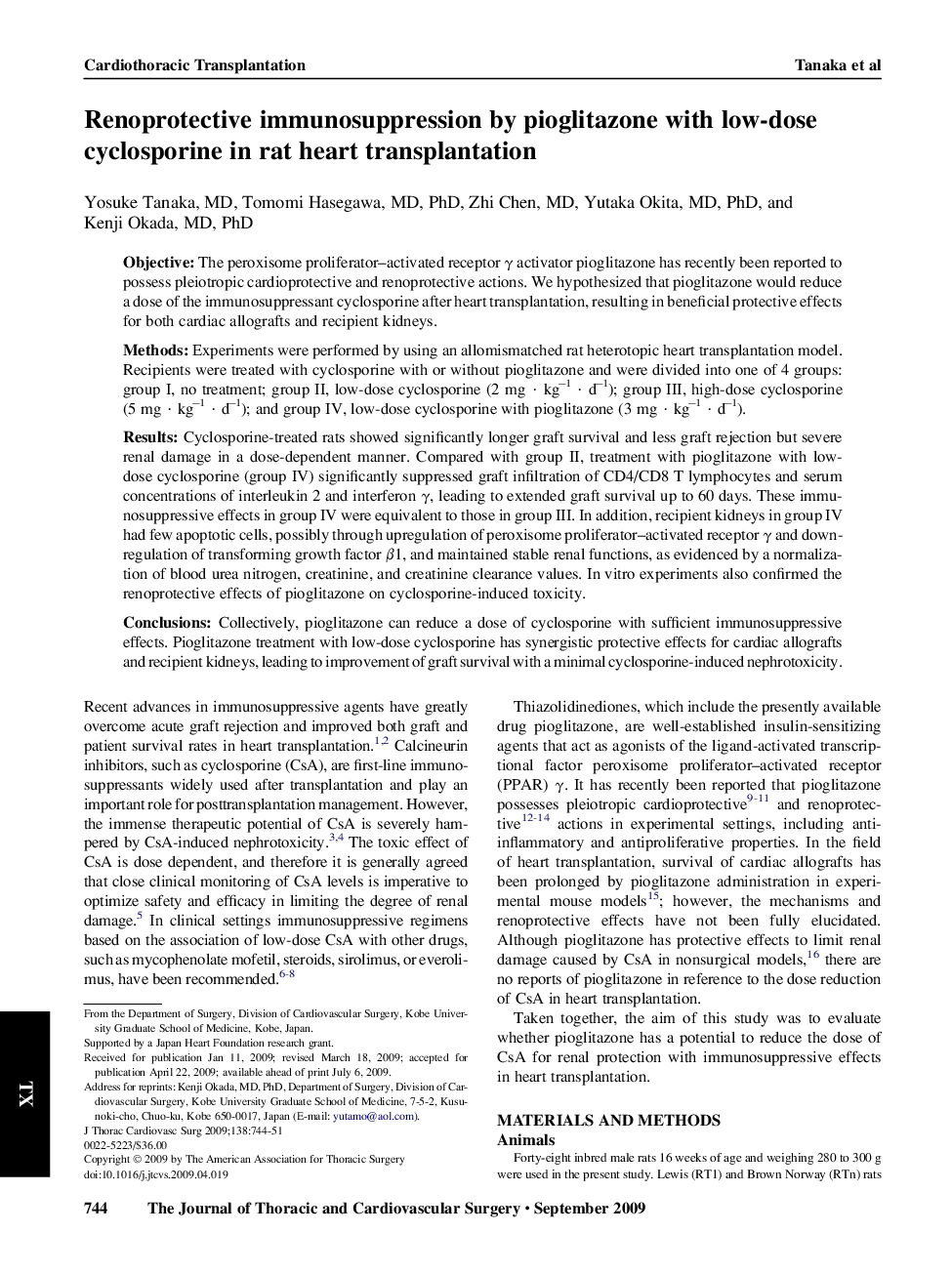| Article ID | Journal | Published Year | Pages | File Type |
|---|---|---|---|---|
| 2985581 | The Journal of Thoracic and Cardiovascular Surgery | 2009 | 8 Pages |
ObjectiveThe peroxisome proliferator–activated receptor γ activator pioglitazone has recently been reported to possess pleiotropic cardioprotective and renoprotective actions. We hypothesized that pioglitazone would reduce a dose of the immunosuppressant cyclosporine after heart transplantation, resulting in beneficial protective effects for both cardiac allografts and recipient kidneys.MethodsExperiments were performed by using an allomismatched rat heterotopic heart transplantation model. Recipients were treated with cyclosporine with or without pioglitazone and were divided into one of 4 groups: group I, no treatment; group II, low-dose cyclosporine (2 mg · kg−1 · d−1); group III, high-dose cyclosporine (5 mg · kg−1 · d−1); and group IV, low-dose cyclosporine with pioglitazone (3 mg · kg−1 · d−1).ResultsCyclosporine-treated rats showed significantly longer graft survival and less graft rejection but severe renal damage in a dose-dependent manner. Compared with group II, treatment with pioglitazone with low-dose cyclosporine (group IV) significantly suppressed graft infiltration of CD4/CD8 T lymphocytes and serum concentrations of interleukin 2 and interferon γ, leading to extended graft survival up to 60 days. These immunosuppressive effects in group IV were equivalent to those in group III. In addition, recipient kidneys in group IV had few apoptotic cells, possibly through upregulation of peroxisome proliferator–activated receptor γ and downregulation of transforming growth factor β1, and maintained stable renal functions, as evidenced by a normalization of blood urea nitrogen, creatinine, and creatinine clearance values. In vitro experiments also confirmed the renoprotective effects of pioglitazone on cyclosporine-induced toxicity.ConclusionsCollectively, pioglitazone can reduce a dose of cyclosporine with sufficient immunosuppressive effects. Pioglitazone treatment with low-dose cyclosporine has synergistic protective effects for cardiac allografts and recipient kidneys, leading to improvement of graft survival with a minimal cyclosporine-induced nephrotoxicity.
